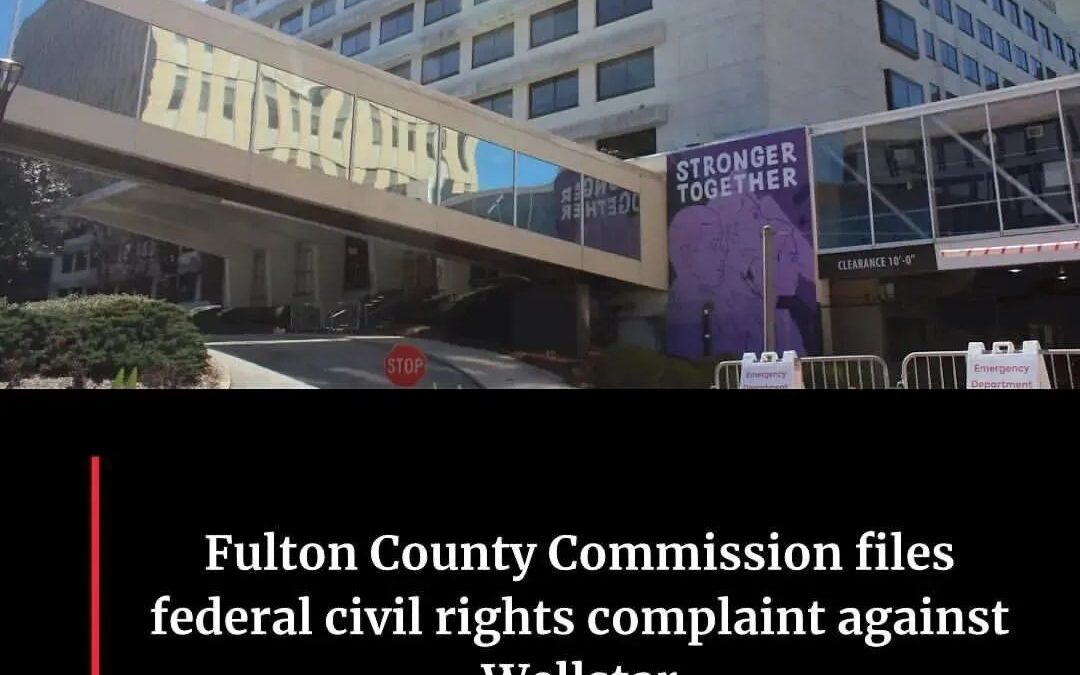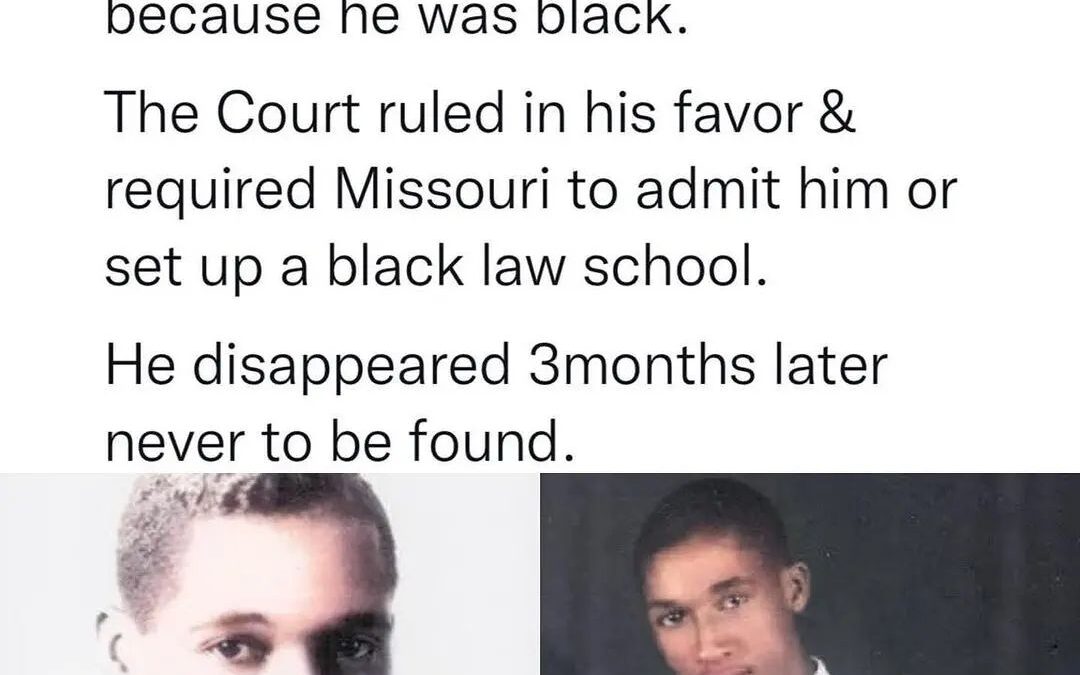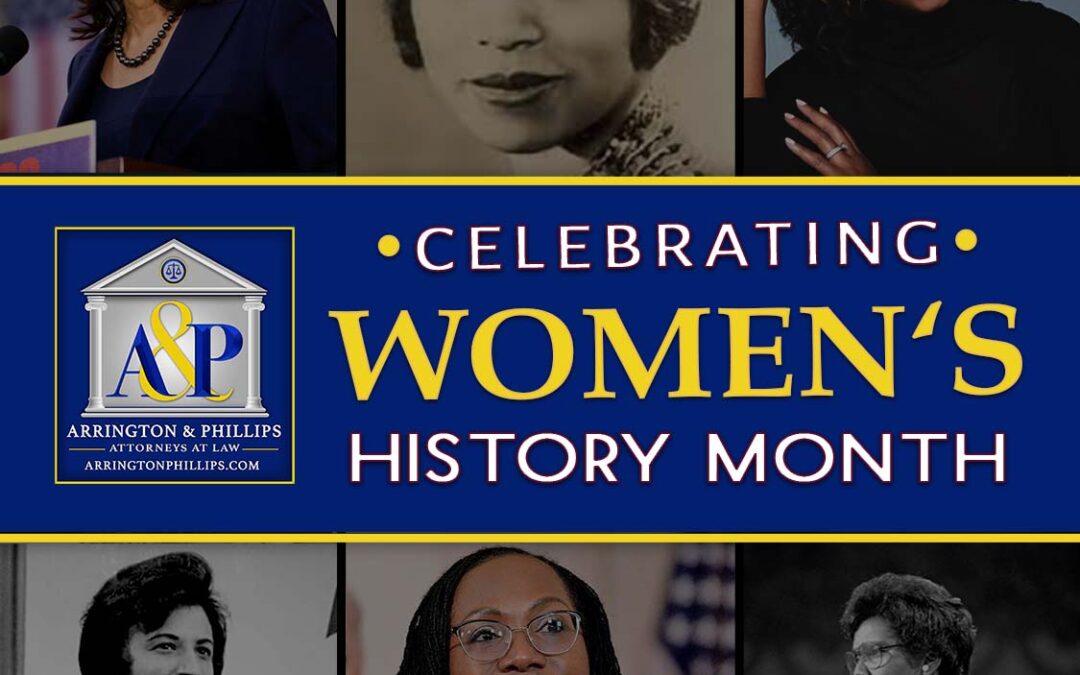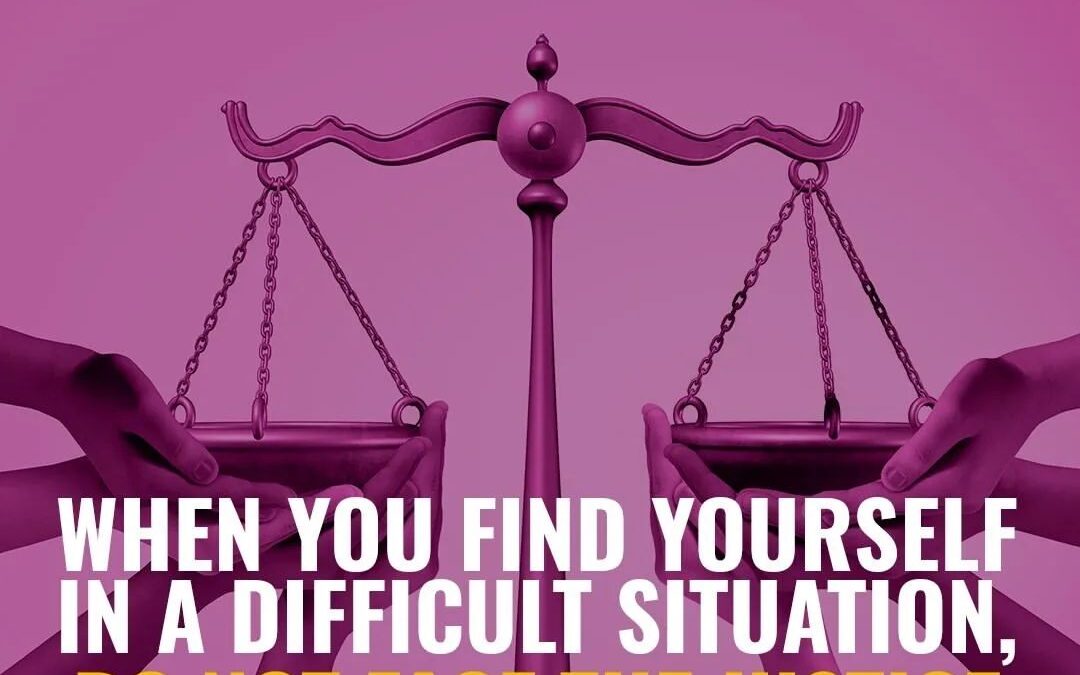
Mar 15, 2023 | Criminal Law
Whether or not one has been directly affected by a crime, it’s important to understand the various types and classifications of criminal offenses to stay informed. In this post, we will examine major categories of crimes based on characteristics such as intent, harm caused, and other related factors – so that readers can become acquainted with the fundamentals of criminal offense definitions in our society.
Introducing the Different Types of Criminal Offenses
Everyone knows criminal activity is wrong but there are many different types of criminal offenses out there. From reckless driving to aggravated assault, criminal activities come in all shapes and sizes. Understanding criminal offenses better can help individuals identify a criminal case and know when it’s time to seek the guidance and advice of a lawyer. A criminal defense attorney Albuquerque provides an abundance of attorneys who possess experience in all types of criminal defense cases. They have the knowledge and expertise to ensure all relevant details about the case are presented, giving them the best chance at gaining a favorable outcome within the court of law.
Understanding Felony Charges and Their Consequences
Understanding the legal implications of a felony charge is critical. A felony conviction can have life-altering consequences, including lengthy prison sentences and a permanent criminal record that can follow you for years. As such, familiarizing yourself with the concept of felonies to make informed decisions is essential. Knowing the distinctions between various types of felony charges, as well as their effects on personal rights, eligibility for certain benefits, housing availability, and employment opportunities, are all valuable pieces of knowledge to be aware of. Being proactive and educated on the law will help ensure that one has all the relevant information.
Exploring Misdemeanor Charges and Their Penalties
Misdemeanors can often feel like minor infractions in the legal system, but they still carry hefty penalties. Understanding the basics of misdemeanors is important for anyone hoping to stay informed about current laws and regulations. When exploring misdemeanor charges, it’s important to know that penalties can range from probation, fines, and community service, to jail time depending on what crime or actions have been committed. Knowledge of one’s rights and wrongs can help ensure an individual avoids any possible punishments or consequences. Taking time to understand the nuances of misdemeanor charges should lead to better decision-making in an effort not only to stay out of trouble but also to be a productive member of society.
Navigating Federal vs State Criminal Cases
Figuring out which laws to abide by and how to be in compliance with both federal and state regulations can be a confusing endeavor, especially when it comes to criminal justice. For most citizens, navigating the nuances between federal and state criminal cases is not an intuitive process. The rules of criminal conduct and the corresponding penalties for breaking them vary widely between the two jurisdictions, so it’s important to understand which applies where. Thankfully, there are legal professionals available who can help guide individuals through this sometimes tricky process. Doing your research ahead of time or working with someone knowledgeable can help you ensure that you are up-to-date on the latest developments in these areas.
Examining Drug Possession Laws and Potential Sentencing
Examining drug possession laws and potential sentencing can be daunting but it’s important to understand them both to prevent unintentional violations and unfair sentences. Scheduling of illicit drugs is an evolving field, often decided through intense debate between legislators and advocates for the defense, prosecution, health organizations, and law enforcement. Different penalties are then assigned based on the schedules attached to the illicit substance, which are intended to reduce crime related to their availability and use. The Sentencing Project reports that some states have taken new steps toward reducing their drug possession sentencing results by offering alternative treatments for certain offenses. Ultimately, understanding these laws and potential sentencing should give individuals insight into where they stand legally when it comes to holding any kind of controlled substance.
Investigating White Collar Crimes and Possible Defenses
Investigating white-collar crime can be a long and complicated process involving hundreds of documents, interviews, investigations, and research. Each case is unique and requires special skills to properly understand the law, methods used, actors involved, and the context surrounding the incident. When it comes to possible defenses to white-collar crime, there are a variety of approaches that individuals or companies accused of such crimes may be able to take. Successfully building a defense strategy for these cases often involves specialized information about economic policy, legal precedence, and an ability to demonstrate that the incidents occurred unintentionally or were due to miscommunication rather than malicious intent. Understanding all of these components is essential in ensuring quality investigation into white-collar criminals and providing effective defense strategies for those suspected of wrongdoing.
Conclusion
Criminal offenses can take many forms and come with varying penalties depending on the circumstances. It is important to be aware of the differences between types of criminal offenses, whether it’s a felony or misdemeanor charge, federal or state offense, drug possession law, white collar crime, or something else. Failing to do so can lead to serious legal trouble down the line. Whatever the issue might be, individuals facing criminal charges should always keep in mind that they still have rights and can consult an experienced legal professional for help in navigating through the intimidating workflow of a court case. Everyone deserves proper representation and competent counsel when having their day in court. So, don’t hesitate to appeal Albuquerque attorneys for getting quality help.
Written by Lawyer Monthly | Shared from Lawyer-Monthly.com

Mar 15, 2023 | HOA Legal
UNDERSTANDING DISPUTE RESOLUTION PER STATE
The first thing an association must do when it encounters such a scenario is to look to its own internal dispute resolution process. An association’s governing documents will often have language on how to deal with disputes. This may start with a formal meeting of the parties involved in the dispute, where they can attempt to resolve their disagreement through conversation. Of course, this is only as effective as the parties allow it to be. If the parties don’t cooperate and aren’t open to discussing the issue at hand, nothing productive will come out of this process.
Many states require HOAs to have a formal dispute resolution process internally. For instance, under Illinois law, it’s mandatory for associations to have a complaint policy and dispute resolution form.
WHAT IS ALTERNATIVE DISPUTE RESOLUTION?
If the parties fail to resolve their dispute, the association can use alternative means of dispute resolution. This is also the best course of action if an HOA’s governing documents don’t provide an internal dispute resolution process.
But, what is alternative dispute resolution? Simply put, it’s a form of dispute resolution that involves the use of an objective third party but without taking the matter to court. Parties engaged in ADR can use mediation or arbitration.
Mediation | Alternative Dispute Resolution Mediation is when a neutral third party listens to accounts from all parties and helps them reach a middle ground. This form of ADR works without forcing any party to agree to the resolution. In other words, all the parties involved must reach a resolution as a group. No one can force another to agree to the solution.
On the other hand, arbitration is when an arbitrator decides the outcome of the dispute for the parties. The arbitrator listens to all arguments and reviews the evidence from all parties. Then, the arbitrator makes a decision, which the parties must follow.
Many states require homeowners associations to first go through mediation or arbitration when faced with a dispute. This is to limit the number of HOA cases presented in court, which can be very expensive. Additionally, it’s worth noting that neither mediation nor arbitration necessarily requires the help of a lawyer.
ALTERNATIVE DISPUTE RESOLUTION PER STATE
Homeowners who wish to find a mediator can use this website to look for one according to their location and area of practice. For arbitrators, homeowners can file a case here. Apart from mediation and arbitration, homeowners can also file a complaint with a state agency.
ALABAMA
In Alabama, homeowners and HOAs can seek help from the Alabama Center for Dispute Resolution. Homeowners can also find mediators and arbitrators through the American Arbitration Association and the Alabama Academy of Mediators & Arbitrators. Consumers may also file a complaint with the Alabama Attorney General’s Office, though it is unclear whether the office handles HOA issues.
ALASKA
Homeowners in Alaska can find a mediator or arbitration through the American Arbitration Association. Alaska currently doesn’t regulate homeowners associations. Consumers may also file a complaint with the Alaska Attorney General’s Office, though it is unclear whether the office handles HOA issues.
ARIZONA
Since 2016, the Arizona Department of Real Estate has been handling HOA disputes. Homeowners can petition the department for a hearing by filling out this form. Homeowners may also find mediators and arbitrators through the American Arbitration Association and the Arizona Academy of Mediators & Arbitrators.
ARKANSAS
Homeowners in Arkansas can find a mediator or arbitration through the American Arbitration Association and the Arkansas Academy of Mediators & Arbitrators. Consumers may also file a complaint with the Arkansas Attorney General’s Office, though it is unclear whether the office handles HOA issues.
CALIFORNIA
Homeowners can turn to the Office of the Attorney General for select HOA-related complaints. For mediators and arbitrators, homeowners can refer to the American Arbitration Association or the California Academy of Distinguished Neutrals.
COLORADO
In Colorado, the Department of Regulatory Agencies regulates homeowners associations. Homeowners can file a complaint through the department’s website. Alternatively, homeowners can look for mediators through the American Arbitration Association, the Mediation Association of Colorado, the Colorado Bar Association, the Colorado Academy of Mediators & Arbitrators, or the Office of Dispute Resolution.
CONNECTICUT
Homeowners in Connecticut can find a mediator or arbitration through the American Arbitration Association or the Connecticut Academy of Mediators & Arbitrators. Consumers may also file a complaint with the Connecticut Attorney General’s Office, though it is unclear whether the office handles HOA issues.
DELAWARE
In Delaware, homeowners can turn to the Office of the Ombudsperson for the Common Interest Community for help in resolving disputes. The division works under the Department of Justice. Homeowners can also look for third-party neutrals through the American Arbitration Association or the Delaware Academy of Mediators & Arbitrators.
FLORIDA
Homeowners in Florida can file a complaint with the Office of the Attorney General or the Department of Business & Professional Regulation. For condominiums, you can file a complaint with the Office of the Condominium Ombudsman. Here is a copy of their comprehensive instructions for filing a complaint against condominium associations or managers. You may also call or e-mail your questions concerning your condominium to the Ombudsman at ombudsman@myfloridalicense.com.
To find a mediator, homeowners can go to the Florida Dispute Resolution Center, the Florida Circuit-Civil Mediator Society, the American Arbitration Association, or the Florida Academy of Professional Mediators.
GEORGIA
In Georgia, homeowners can seek help from the Office of Dispute Resolution. Homeowners can also look for third-party neutrals through the American Arbitration Association or the Georgia Academy of Mediators & Arbitrators.
HAWAII
Homeowners in Hawaii can find a mediator or arbitration through the American Arbitration Association, the Mediation Center of the Pacific, West Hawaii Mediation Center, or the Ku’ikahi Mediation Center. For complaints, consumers can refer to the Regulated Industries Complaints Office, though it is unclear whether the office handles HOA issues.
IDAHO
Homeowners in Idaho can find a mediator or arbitration through the American Arbitration Association or the Idaho Academy of Mediators & Arbitrators. Consumers may also file a complaint with the Idaho Attorney General’s Office, though it is unclear whether the office handles HOA issues.
ILLINOIS
In Illinois, homeowners can seek mediation services from the Center for Conflict Resolution. Homeowners can also look for third-party neutrals through the American Arbitration Association or the Illinois Academy of Mediators & Arbitrators. They may also lodge a complaint with the Department of Financial & Professional Regulation.
INDIANA
Consumers may also file a complaint with the Indiana Attorney General’s Office, though a transaction must have taken place before the office can start investigations. It is unclear whether the office handles HOA issues. They may also look for mediators or arbitration through the Indiana Judicial Branch’s mediator search, the American Arbitration Association, or the Indiana Academy of Mediators & Arbitrators.
IOWA
Consumers may also file a complaint with the Iowa Attorney General’s Office, though it is unclear whether the office handles HOA issues. It is a good idea to attach supporting documents to the complaint, such as correspondence, proofs of payments, etc. They may also find mediators and arbitrators through the Iowa Academy of Mediators & Arbitrators or the American Arbitration Association.
KANSAS
Homeowners looking for a mediator can check the Kansas Judicial Branch’s website, the American Arbitration Association, or the Kansas Academy of Mediators & Arbitrators. The state government also provides a list of mediators per area. There’s also the option of filing specific types of complaints with the Attorney General’s Office.
KENTUCKY
In Kentucky, Homeowners can find mediators and arbitrators through the Kentucky Academy of Mediators & Arbitrators or the American Arbitration Association. Consumers may also file a complaint with the Kentucky Attorney General’s Office, though it is unclear whether the office handles HOA issues.
LOUISIANA
Homeowners in Louisiana can look for mediators and arbitrators through the Louisiana State Bar Association directory, the American Arbitration Association, or the Louisiana Academy of Mediators & Arbitrators. Additionally, consumers can also file a complaint with the Office of the Attorney General, though it is unclear whether the office handles HOA issues.
MAINE
Homeowners can find mediators and arbitrators through the Maine Association of Mediators, the American Arbitration Association, and the Maine Academy of Mediators & Arbitrators. The state’s Judicial Branch also maintains an Alternative Dispute Resolution program. Moreover, consumers can also file a complaint with the Office of the Attorney General, though it is unclear whether the office handles HOA issues.
MARYLAND
Consumers can file a complaint with the Office of the Attorney General, though it is unclear whether the office handles HOA issues. The state’s Mediation and Conflict Resolution Office also provides helpful information, including an online directory of mediators. Homeowners can also look for third-party neutrals through the American Arbitration Association or the Maryland Academy of Mediators & Arbitrators.
Maryland is special in that two counties also have their own offices regulating homeowners associations:
Prince George’s County (ADR Request Form)
Montgomery County
MASSACHUSETTS
Homeowners can find mediators and arbitrators through the American Arbitration Association or the Massachusetts Academy of Mediators & Arbitrators. The Commonwealth of Massachusetts also provides information on ADR, including approved ADR programs. Additionally, consumers can file a complaint with the Office of the Attorney General, though it is unclear whether the office handles HOA issues.
MICHIGAN
Homeowners in Michigan can go through the Office of Dispute Resolution to find mediators. The American Arbitration Association and the Michigan Academy of Mediators & Arbitrators also provide a list of mediators and arbitrators in the state. In addition to this, consumers may also lodge a complaint with the Department of the Attorney General, though it is unclear whether the office handles HOA issues.
MINNESOTA
The Minnesota Judicial Branch handles alternative dispute resolution. Apart from that, homeowners can look for mediators and arbitrators through the American Arbitration Association or the Minnesota Academy of Mediators & Arbitrators.
MISSISSIPPI
Homeowners can find mediators and arbitrators through the American Arbitration Association or the Mississippi Academy of Mediators & Arbitrators. The Mississippi Bar also maintains a directory of mediators.
MISSOURI
Homeowners can look for mediators and arbitrators through the American Arbitration Association, the Association of Missouri Mediators, or the Missouri Academy of Mediators & Arbitrators. Additionally, consumers can file a complaint with the Missouri Attorney General, though it is unclear whether the office handles HOA issues.
MONTANA
Homeowners can find mediators and arbitrators through the American Arbitration Association or the Montana Academy of Mediators & Arbitrators. Moreover, homeowners can lodge a complaint with the Office of Consumer Protection, though it is unclear whether the office handles HOA issues.
NEBRASKA
For complaints, homeowners can turn to the Attorney General’s Office, though it is unclear whether the office handles HOA issues. Homeowners can also find approved mediators on the Nebraska Judicial Branch website, the American Arbitration Association, or the Nebraska Mediation Association.
NEVADA
The Nevada Real Estate Division provides an alternative dispute resolution program. Homeowners can also find mediators and arbitrators through the American Arbitration Association or the Nevada Academy of Mediators & Arbitrators. Finally, homeowners can file complaints with the Office of the Ombudsman for Common-Interest Communities.
NEW HAMPSHIRE
In New Hampshire, consumers can lodge a complaint with the Consumer Protection Bureau, though it is unclear whether the office handles HOA issues. Homeowners looking for alternative dispute resolution may also find mediators and arbitrators through the American Arbitration Association or the New Hampshire Academy of Mediators & Arbitrators.
NEW JERSEY
In New Jersey, homeowners can look for third-party neutrals through the American Arbitration Association, the New Jersey Academy of Mediators & Arbitrators, and the District of New Jersey’s certified mediator list.
NEW MEXICO
In New Mexico, homeowners can look for mediators through the American Arbitration Association and the New Mexico Academy of Mediators & Arbitrators. Consumers can also lodge a complaint with the New Mexico Attorney General, though it is unclear whether the office handles HOA issues.
NEW YORK
Homeowners in New York can look for mediators through the American Arbitration Association, the New York Academy of Mediators & Arbitrators, or the New York Courts.
The New York Attorney General can also help homeowners with some problems concerning their HOAs. However, the Attorney General’s Office will not pursue an investigation into an HOA’s breaches of the law unless homeowners submit substantial evidence. Simple, baseless reports will not be accepted.
NORTH CAROLINA
In North Carolina, consumers can file a complaint with the Office of the Attorney General, though it is unclear whether the office handles HOA issues. Additionally, homeowners can look for third-party neutrals through the Dispute Resolution Commission, the American Arbitration Association, or the North Carolina Academy of Superior Court Mediators.
NORTH DAKOTA
In North Dakota, homeowners can look for mediators through the American Arbitration Association. The North Dakota Courts also provide information on alternative dispute resolution, including a roster of third-party neutrals.
OHIO
The Supreme Court of Ohio provides information and assistance with dispute resolution. Homeowners can also look for mediators through the American Arbitration Association or the Ohio Academy of Mediators & Arbitrators.
OKLAHOMA
In Oklahoma, homeowners can lodge a complaint with the Oklahoma Attorney General, though it is unclear whether the office handles HOA issues.. They can also find third-party neutrals through the American Arbitration Association or the Oklahoma Academy of Mediators & Arbitrators.
OREGON
Oregon homeowners can seek mediators and third-party neutrals through the American Arbitration Association or the Oregon Academy of Mediators & Arbitrators.
PENNSYLVANIA
In Pennsylvania, homeowners can look for third-party neutrals through the American Arbitration Association, the Pennsylvania Academy of Mediators & Arbitrators, or the Pennsylvania Council of Mediators. Moreover, consumers may also file a complaint with the Attorney General’s Office, though it is unclear whether the office handles HOA issues.
RHODE ISLAND
Consumers in Rhode Island can file a complaint with the Office of the Attorney General, though it is unclear whether the office handles HOA issues. In addition to this, homeowners can also search for mediators through the Rhode Island Mediators Association or the American Arbitration Association.
SOUTH CAROLINA
In South Carolina, homeowners can find mediators through the American Arbitration Association or the South Carolina Academy of Mediators & Arbitrators. Consumers can also file a complaint with the Department of Consumer Affairs, though it is unclear whether the office handles HOA issues.
SOUTH DAKOTA
Homeowners in South Dakota can look for mediators through the American Arbitration Association. Consumers can also file complaints with the Office of the Attorney General, though it is unclear whether the office handles HOA issues.
TENNESSEE
In Tennessee, consumers can lodge a complaint with the Attorney General & Reporter, though it is unclear whether the office handles HOA issues. Homeowners can also find third-party neutrals through the American Arbitration Association, the Tennessee Academy of Mediators & Arbitrators, or the Tennessee State Courts directory.
TEXAS
Consumers in Texas can file a complaint with the Attorney General under the Consumer Protection Division, though it is unclear whether the office handles HOA issues. Additionally, homeowners can look for mediators through the American Arbitration Association, the Texas Academy of Distinguished Neutrals, or the Texas Association of Mediators.
UTAH
For those looking for mediators, the American Arbitration Association, the Utah Academy of Mediators & Arbitrators, and the Utah Courts provide a directory of third-party neutrals. Moreover, consumers can lodge a complaint with the Office of the Attorney General, though it is unclear whether the office handles HOA issues.
VERMONT
In Vermont, homeowners can find mediators and arbitrators through the American Arbitration Association or the Vermont Academy of Mediators & Arbitrators. They may also file a complaint with the Office of the Vermont Attorney General, though it is unclear whether the office handles HOA issues.
VIRGINIA
In Virginia, homeowners associations are regulated by the Office of the Common Interest Community Ombudsman. Homeowners can file a complaint through this office for any concerns with their HOA. Additionally, homeowners can look for third-party neutrals through the American Arbitration Association or Virginia’s Judicial System.
WASHINGTON
Homeowners in Washington can find mediators and arbitrators through the American Arbitration Association, the Washington Mediation Association, or the Washington Academy of Mediators & Arbitrators. Moreover, consumers can also file a complaint with the Office of the Attorney General, though it is unclear whether the office handles HOA issues.
WEST VIRGINIA
In West Virginia, the American Arbitration Association, the West Virginia Academy of Mediators & Arbitrators, and the West Virginia State Bar maintain a directory of third-party neutrals. Furthermore, consumers can file a complaint with the Office of the WV Attorney General, though it is unclear whether the office handles HOA issues.
WISCONSIN
Homeowners in Wisconsin can look for mediators and arbitrators through the American Arbitration Association or the Wisconsin Academy of Mediators & Arbitrators. Additionally, consumers can lodge a complaint with the Wisconsin Department of Justice, though it is unclear whether the office handles HOA issues.
WYOMING
In Wyoming, homeowners can find third-party neutrals through the American Arbitration Association.
THE FINAL WORD
Homeowners should know about the possible avenues of dispute resolution per state. This way, they know where to turn to in case they have a complaint or dispute with their homeowners association, including disputes concerning rule enforcement.
Finding an HOA management company is not always easy. Start looking for the best one in your area using our comprehensive online directory!
Written by | Source: HOA Management

Mar 8, 2023 | Auto Accidents, Personal Injury
Written by Lawyer Monthly
However, you can seek compensation for the damages suffered. You should hire a car accident lawyer to ensure you receive the deserved damages.
If your accident happened in Florida, an Orlando auto accident lawyer can help you in various ways. By working with a qualified car accident lawyer, you can focus on your recovery while they fight for your interests.
Here are the benefits of hiring a car accident lawyer.
#1 – Help You Understand Your Legal Rights and Options
Knowing your legal rights and options can be challenging when you get involved in a car accident. A car accident lawyer can help you understand the legal process and what you can expect. They can also advise you on the best course of action to take based on the specific circumstances of your case.
If another driver’s negligence caused the accident, your attorney could help you pursue a claim against the at-fault driver. They can also advise you on the statute of limitations ; the time frame you must file a claim.
Additionally, your attorney can help you understand your rights concerning criminal charges if you have been charged after an accident.
#2 – Assessing the Value of Your Claim
A car accident lawyer can help you determine the value of your claim by considering various factors. These factors include medical expenses, lost wages, pain and suffering, and property damage.
Your attorney will use their experience and knowledge of the legal process to gather evidence to support your claim. Solid evidence will help you receive the maximum compensation possible.
#3 – Negotiating With Insurance Companies
Negotiating with insurance companies in Orlando can be a complex and time-consuming process. Insurance companies will often try to settle claims for as little as possible. A car accident lawyer can help you negotiate with the insurance companies on your behalf.
An attorney can also help you understand and respond to any settlement offers made by the insurance company. They can also help you understand any restrictions related to insurance claims.
#4 – Handling Paperwork and Legal Filings
Pursuing a claim after a car accident can be overwhelming, especially on paperwork and legal filings. A car accident lawyer can help you by handling all the necessary paperwork and legal filings on your behalf.
These include filing a complaint, gathering evidence, and responding to legal documents. By handling the legal filings, your attorney can take a significant burden off your shoulders and allow you to focus on your recovery. They also ensure that all the necessary paperwork is correct and submitted on time.
#5 – Representing You in Court
Representing you in court is one of a car accident lawyer’s most important aspects. If your attorney cannot settle with the insurance company, they can file a lawsuit and represent you in court.
During the court proceedings, your attorney will work to prove that the other party was at fault for the accident. They will do this by presenting evidence to support your claim. Your attorney will also offer expert witnesses to testify on your behalf.
If the case goes to trial, your attorney will present your case to a judge or jury and will make arguments to persuade them to rule in your favor.
#6 – Experience and Knowledge
An attorney specializing in car accident cases will have a deep understanding of the laws about car accidents. It can include specific state laws, the statute of limitations for filing a claim, and the types of evidence used to support a claim.
Experience also allows an attorney to expect potential issues and develop strategies for resolving them. This will enable them to anticipate any legal arguments that the insurance company may use to deny or cut your claim.
Wrap-Up
Hiring a car accident lawyer can provide a wide range of benefits to those involved in a car accident. Given that about 30,000 car accidents happen in Orlando every year, this idea doesn’t sound far-fetched for anybody that drives even occasionally.
An experienced car accident lawyer will know how to navigate the legal process and represent your interests. They can also help you understand the specific laws related to car accidents in your state. They can use this knowledge to help you receive fair compensation for your losses.
Shared from Lawyer-Monthly.com











